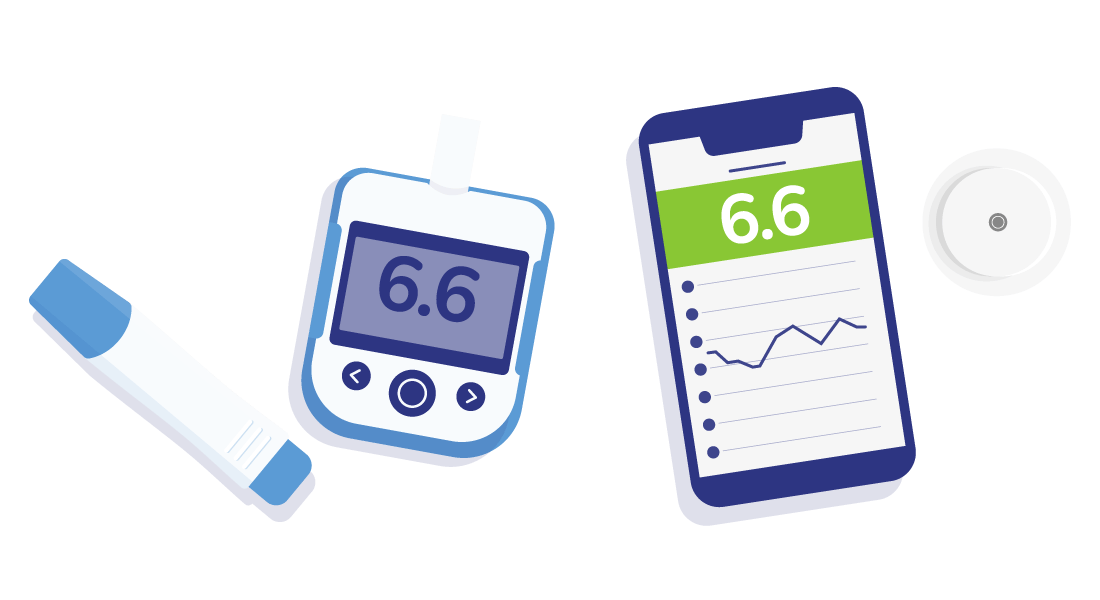About the study
The PROTECT study is a clinical trial which will examine whether using CGM improves maternal glucose and neonatal outcomes in early-onset type 2 diabetes pregnancy. The PROTECT study will also measure its impact on maternal wellbeing and diabetes treatment satisfaction.

Locations
Current enrolment curve
Recruitment target: 422
Information about the Study
Eligibility
INCLUSION CRITERIA
Type 2 diabetes
16 years of age or over
Pregnant less than 16 weeks’
HbA1c ≥43 mmol/mol
Willing to use study devices
Able to provide informed consent
EXCLUSION CRITERIA
Non-type 2 diabetes
Severe kidney disease
Primary Outcomes
Primary maternal outcome: The percentage time spent with maternal glucose levels within target range, as recorded by CGM Time-In-Range (TIR 3.5-7.8 mmol/l) across both arms from 20 until 38 weeks’ gestation or until delivery, if delivery is earlier than 38 weeks’ gestation.
Primary neonatal outcome: Neonatal unit admission or death (stillbirth/neonatal death).
Things to Know
The PROTECT study findings will inform future NICE guidance, improving future care for pregnant women with type 2 diabetes.
PROTECT is registered on the ISRCTN Trial Registry: ISRCTN12804317.
Target Population
422 ethnically diverse pregnant women with type 2 diabetes from across 20 NHS maternity clinics
Interventions
Women meeting the eligibility criteria will be randomised to real-time study CGM (Libre 3) or to continue with standard care glucose monitoring (finger-prick testing)
Study Funder and sponsor
The study is funded by the National Institute for Health and Care Research (NIHR). The sponsor is the University of East Anglia. The study is coordinated by the Norwich Clinical Trials Unit.
Study team
Prof Helen Murphy MBBChBAO, FRACP, MD
Co-Chief Investigator
Dr Helen Murphy is a Professor of Medicine (Diabetes and Antenatal Care) at the University of East Anglia, and a practicing clinician (Norfolk & Norwich University Hospital NHS Trust), Norwich, UK.
She runs a diabetes pregnancy research programme which aims to support women with diabetes to achieve the pregnancy glucose targets required for optimal mother and baby health outcomes. She co-led the CONCEPTT Continuous Glucose Monitoring (CGM) trial. CONCEPTT demonstrated health benefits for mothers with type 1 diabetes (T1D), their newborn infants and the potential for substantial healthcare cost savings. In addition to scientific contributions, building research infrastructure and supporting the next generation of clinical academics, data from CONCEPTT led to international changes in clinical practice, CGM is now the recognised standard of care for pregnant women with T1D.
Her work with Professor Roman Hovorka demonstrating that hybrid closed-loop systems could transform the future clinical management of T1D during pregnancy was published in the New England Journal of Medicine. Based on these landmark studies, the CamAPS FX closed-loop system is licensed for use during T1D pregnancy and endorsed by the 2023 NICE TA for women who are pregnant or planning pregnancy.
Helen also serves as clinical lead for the National Pregnancy in Diabetes (NPID) audit, which is the largest population-based study in diabetes pregnancy. Data from NPID directly informs national healthcare policy, highlighting the urgent need to improve glycaemic management in type 2 diabetes (T2D) pregnancy.
Supported by JDRF, Diabetes UK, and the NIHR, her research is changing the management of diabetes in pregnancy. Helen serves on several research committees, the editorial board for Diabetes Care, Diabetologia, and is a regular contributor to national and international scientific meetings.

Prof Eleanor Scott
Co-Chief Investigator
Professor Eleanor Scott is Professor of Medicine (Diabetes and Maternal Health) at the University of Leeds and Leeds Teaching Hospital NHS Trust.
She leads the diabetes in pregnancy service and integrates delivering clinical care with performing clinical research using new technologies to improve pregnancy outcomes for women with diabetes. Recent studies include Chief Investigator on: MAGIC – using continuous glucose monitoring (CGM) to redefine diagnosis of gestational diabetes (GDM); PROTECT- a randomised controlled trial of CGM in Type 2 diabetes pregnancy; Co-Investigator on: AIDAPT – a randomised controlled trial of closed loop in Type 1 diabetes pregnancy; RECOGNISE – a feasibility study of CGM in GDM; and VELOCITY – fetal growth and CGM in Type 1 and 2 diabetes pregnancy.
She has helped shape services nationally through roles that include: clinical lead for National Gestational Diabetes Audit; NPID Audit advisory group; NHS England Clinical Lead - developing & delivering the clinical pathways, procurement, training & governance required for rollout to all NHS Trusts of continuous glucose monitoring for women with diabetes in pregnancy as part of the NHS long term plan; Diabetes Technology Network-UK - the development & delivery of an educational toolkit to support healthcare professionals & patients across the UK to use continuous glucose monitoring effectively in pregnancy; NHS England Clinical co-lead for Implementation of Hybrid Closed Loop nationally in pregnancy following the results of the AIDAPT trial and integration into NICE TA; NHS England Saving Babies Lives Care Bundle Clinical co-lead for Element 6 Diabetes. Internationally she is a member of DPSG and general secretary for IADPSG.

Corinne Collett
Trial Manager
Corinne is an experienced Trial Manager at Norwich Clinical Trials Unit with a special interest in diabetes pregnancy research. Corinne has worked in clinical trials for 17 years and is passionate about delivering high quality research. She has previously worked with Professor Murphy on the AiDAPT study, which was published in the New England Journal of Medicine and changed NICE guidance.

Miranda Hayes
Trial Assistant
Miranda is the Trial Assistant for PROTECT working at the Norwich Clinical Trials Unit. She has previous research experience investigating the effects of metacognitive abilities on curiosity-based learning and is excited to now be working on diabetes pregnancy research.
